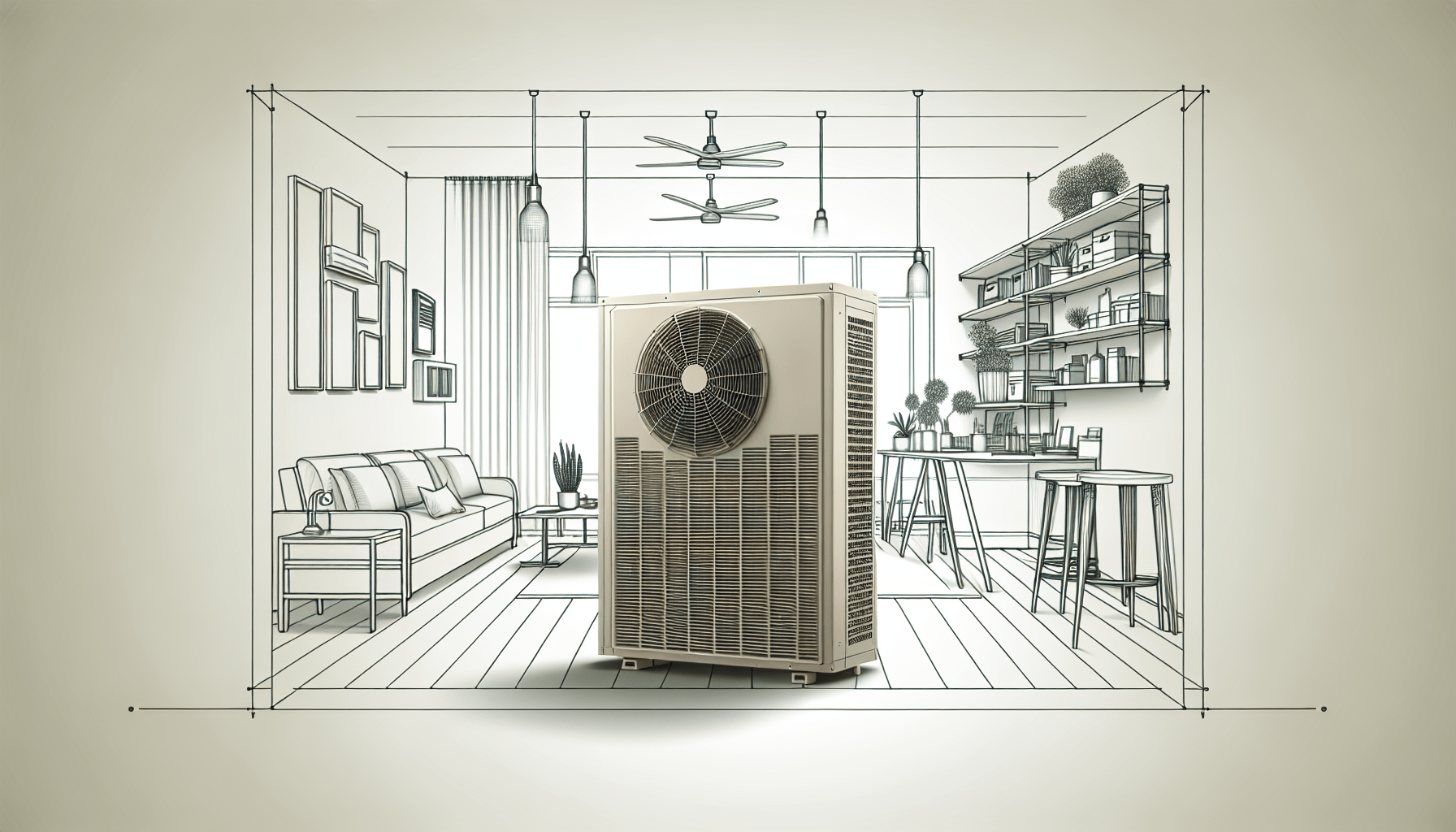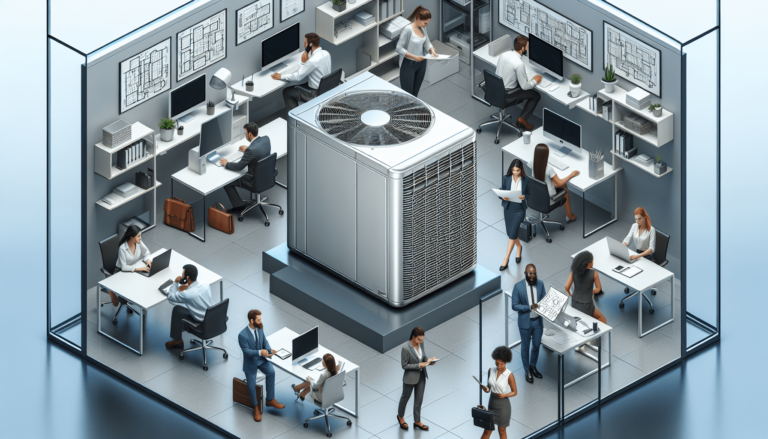

HVAC Services
Get Professional Repairs From The Area's Trusted HVAC Technicians. Ask About Our Services! We Offer Professional Heating & Cooling System Repairs And Guarantee Long-Lasting Results.
Got Question? Call us: (850) 678-2665Financing
Small Business HVAC: Making The Right Choice
Discover the essentials of selecting the ideal HVAC system for your small business, boost comfort, efficiency, and savings. Avoid common pitfalls with these expert tips.

Have you ever wondered how to choose the right HVAC system for your small business? The choices can feel overwhelming, but making the right decision is critical not only for your comfort but also for your bottom line. Choosing an appropriate heating, ventilation, and air conditioning system can impact energy efficiency, employee productivity, and customer satisfaction. Together, we will explore everything you need to know in order to make an informed HVAC choice for your business.
Understanding HVAC Systems for Small Businesses
HVAC systems are not one-size-fits-all. The needs of a small retail store differ from those of a bustling cafe or a quiet office. Your business type and size dictate specific HVAC requirements. Getting this right means understanding what HVAC systems do and how they can best serve your business operations.
What is HVAC?
At its core, HVAC stands for Heating, Ventilation, and Air Conditioning. These systems control indoor climate, ensuring comfortable temperatures and air quality. Proper HVAC installation and maintenance can reduce energy costs and extend system life.
Why HVAC Matters for Small Businesses
Why should your business care about HVAC? Simply put, a good system keeps your space comfortable year-round. It attracts customers, keeps employees productive, and prevents costly repairs. Plus, efficient systems help reduce energy bills, which is vital for small-business budget management.
Types of HVAC Systems
Different small businesses have different HVAC needs. Understanding the types of HVAC systems helps you pinpoint the best option for your business and conditions.
Split System
A split system is the most common type you’ll encounter. It consists of indoor and outdoor components. The outdoor unit contains the compressor and condenser, while the indoor unit houses the air handler and evaporator. This system is ideal for larger businesses with more diverse space needs.
Packaged System
A packaged system is a single unit that combines heating and cooling components. This compact setup is useful for small businesses with limited indoor space. They’re easy to install on rooftops or alongside buildings.
Heat Pumps
Heat pumps are versatile because they serve dual purposes. They can both heat and cool your business space. This system transfers heat rather than generating it, making it energy efficient. Heat pumps work best in moderate climates.
Ductless Mini-Split Systems
Ductless systems consist of an outdoor unit connected to multiple indoor units via refrigerant lines. They are practical for older buildings without existing ductwork. They offer flexibility as temperature can be controlled individually in each area, perfect for businesses with diverse space usage.
Considerations for Choosing Your HVAC System
Understanding your options leads us to consider what matters when choosing the right system. Each factor impacts how well an HVAC system will fit your needs.
Size of Your Business Space
The size of your building dictates the system size you need. Too small, and it will constantly run without effectively cooling or heating. Too large, and it wastes energy. Proper sizing is essential for efficiency and comfort.
Climate and Location
Knowing your location’s climate helps determine your system type. If your area experiences mild weather, a heat pump might be sufficient, while a packaged system might work better where summers and winters are extreme.
Budget and Cost Efficiency
While a lower initial cost is appealing, consider long-term costs and savings. Energy-efficient systems often have higher upfront costs but pay off in reduced energy bills over time. Calculate your budget to balance initial purchase with long-term investment.
Energy Efficiency
Energy efficiency is significant both for the environment and your budget. Look out for systems with high SEER (Seasonal Energy Efficiency Ratio) ratings. The higher the SEER number, the more efficient the system.
Local Regulations
Local regulations can impact your choices. Some areas have energy-saving laws that your system must comply with. Get familiar with local codes to avoid future compliance headaches.

Benefits of a Well-Chosen HVAC System
An HVAC system isn’t just a simple utility; it’s an asset to your business when chosen correctly. Here’s why:
Enhanced Comfort
A good HVAC system provides consistent temperature and humidity control, enhancing the comfort of your employees and customers alike. Comfortable environments increase productivity and customer satisfaction.
Cost Savings over Time
Efficient systems reduce monthly energy bills. Although they may cost more upfront, the long-term savings are significant. Choosing an efficient system can positively impact your profit margins.
Reliability and Longevity
Investing in a quality system means fewer breakdowns and longer life. It reduces repair costs and downtime, further optimizing your business’s efficiency. Regular maintenance further extends system life.
Improved Air Quality
Good HVAC systems filter out pollutants, allergens, and odors. This improvement in air quality creates a healthier environment, promoting well-being for everyone in your establishment.
Common Mistakes to Avoid
Making mistakes in choosing or maintaining your HVAC system can be costly. Here are some pitfalls to avoid:
Overlooking Professional Installation
Proper installation is key to HVAC performance. Avoid DIY installation. Hire experienced professionals who can guarantee efficient functioning and compliance with local regulations.
Ignoring Regular Maintenance
Regular maintenance prevents minor issues from becoming costly repairs. Schedule professional checks and clean filters regularly to keep systems running smoothly.
Neglecting System Size Importance
A mismatched system size leads to inefficiency and higher energy bills. Always conduct a load calculation to find the right fit.

DIY Maintenance Tips
While major maintenance should be left to professionals, there are small steps you can take to ensure your HVAC runs efficiently:
Regular Filter Changes
Change filters every 1-3 months, depending on usage. Clogged filters strain your system and reduce efficiency.
Inspecting Ductwork
Ensure ducts are clean and free from obstructions. Dirty or leaking ducts reduce system efficiency.
Monitoring System Performance
Pay attention to signs of wear like unusual noises, odd smells, or uneven temperatures. These can indicate more serious problems needing attention.
Professional Services
Even with do-it-yourself tips, professional service is crucial for optimal HVAC system performance. Let’s explore how professional services add value.
Regular Maintenance Appointments
Scheduled maintenance can identify and address small issues before they develop into major problems. Professional service enhances system efficiency and prolongs life.
System Upgrades
Technological advancements constantly improve HVAC systems. Professionals can advise on upgrades or new systems that increase energy efficiency and adapt to your evolving business needs.
Emergency Repairs
Emergencies happen. Having a reliable service provider means quick response times, minimizing business disruption, and preventing further damage.
Future Trends in HVAC
The HVAC industry evolves, driven by technological advancements and environmental awareness. Knowing what’s coming can better prepare you for future investments.
Smart HVAC Systems
Smart systems use technology to control temperature remotely via apps. They allow for programming schedules, leading to more efficient energy use.
Green Initiatives
Green HVAC solutions prioritize energy efficiency and less environmental impact. As technology advances, expect more eco-friendly, economically beneficial systems.
Improved Air Filtration
Advanced air filtration technologies are becoming common. These systems improve indoor air quality, offering added health benefits.
How to Choose a Reliable Provider
The right HVAC provider can make your system more efficient and reliable. Here’s how to select one:
Research and Reviews
Start with thorough research and online reviews. Look for providers with consistent positive feedback and proven industry experience.
Check Credentials
Ensure any provider has proper licensing and insurance. This guarantees professional standards and protects you if installation issues arise.
Ask for Referrals
Word of mouth remains powerful. Ask other business owners for referrals to trusted providers they’ve worked with successfully.
Conclusion: Your Path to HVAC Success
Choosing the right HVAC system for your small business is fundamental to its success. Consider the type of system best suited for your space, climate, and budget. Avoid common pitfalls, and approach decisions thoughtfully. Remember, while DIY tips help with minor issues, professional services are invaluable for setup, maintenance, and emergencies. Stay informed of future trends to make smart, sustainable choices. If you need assistance or insights, consider reaching out to a professional HVAC provider like Tempacure Heating and Air Conditioning for expert guidance tailored to your needs.





